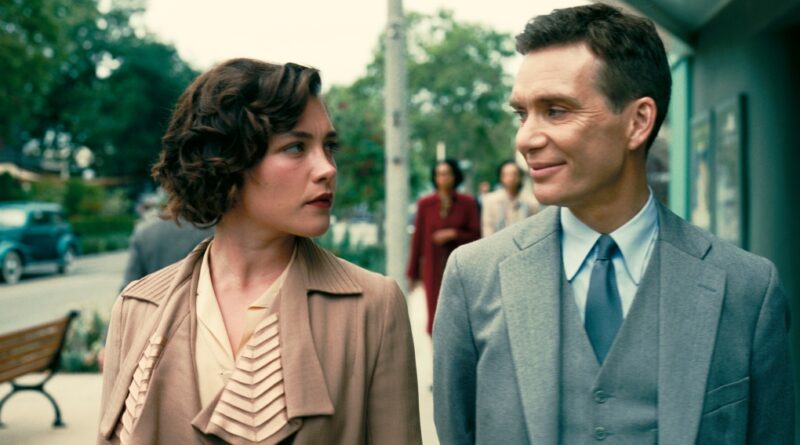Oppenheimer Review: Nolan’s Cinematic Masterstroke
Christopher Nolan’s latest blockbuster, Oppenheimer, is a dense and intricate period piece that weaves together various timelines and themes to create a captivating cinematic experience. The chilling biographical drama delves into the life of J. Robert Oppenheimer, the ‘Father of the Atomic Bomb,’ exploring the events leading up to and following the world’s first nuclear test, code-named ‘Trinity,’ which he led for the US Army.
The film takes inspiration from Kai Bird and Martin J. Sherwin’s biography, American Prometheus: The Triumph and Tragedy of J. Robert Oppenheimer, to narrate the events that led the theoretical physicist to become both lauded and infamous for his role in developing the atomic bomb. For history enthusiasts, the film’s portrayal of the Germany-USA-Japan-Russia arms race and socio-political context during World War II will provide a deeper understanding of the events in the film.
Cillian Murphy delivers a haunting and mesmerising performance as J. Robert Oppenheimer, portraying him as an atomic-age Frankenstein—a man captivated by the boundless possibilities of science, but eventually realising the destructive potential of his creation. As the film unfolds, the audience witnesses Oppenheimer’s internal conflict, brilliantly depicted through Murphy’s far-seeing blue ice-chip eyes.
Nolan’s brilliant use of silences, accompanied by Ludwig Goransson’s hauntingly immersive score, enhances the film’s emotional impact and elevates Murphy’s acting to the top of the Oscar-worthy ladder for this year.
Love and regret, recurring themes in Nolan’s movies, play a central role in Oppenheimer, presenting a moving portrayal of human disillusionment. The film delves into Oppenheimer’s conflicted mindset, highlighting the disconnect between his ambition and relentless love for physics and the moral scruples he faced.

Although the atomic bomb is an essential part of the narrative, the film primarily studies the psyche of its creator. Oppenheimer’s internal struggle and the weight of his discoveries leave the audience in tatters, resonating deeply with its portrayal of a man haunted by his creation and the consequences of his actions.
The ensemble cast features stars like Robert Downey Jr., Emily Blunt, Matt Damon, Rami Malek, Florence Pugh, Benny Safdie, Jack Quaid, Gary Oldman, and more that deliver stellar performances, making the characters feel like real individuals rather than historical figures from a textbook. Robert Downey Jr. stands out with the portrayal of Lewis Strauss which is hailed as his career-best, earning him accolades and possibly his third Academy Award nomination.
The film’s structure resembles an atom, with Oppenheimer as the nucleus and peripheral characters acting as protons and neutrons, constantly striking at the core. This dynamic and nuanced character interplay makes Oppenheimer a film worth multiple viewings, as each perspective adds depth and complexity to the narrative.
Another aspect that sets Oppenheimer apart is Nolan’s decision not to rely on CGI or VFX to depict the Trinity explosion. Although in our opinion, the explosions that happen in the audience’s mind are even more real and impactful than those on the screen.
Christopher Nolan’s mesmerising direction, coupled with outstanding performances from the ensemble cast, creates a cinematic experience that lingers long after leaving the theatre. While it might not be Nolan’s most grandiose film, it stands on its own as a poignant exploration of a complex historical figure and the consequences of unleashing the power of science upon the world.
In conclusion, Oppenheimer is a thought-provoking and haunting masterpiece that delves into the life of J. Robert Oppenheimer, the man behind the atomic bomb. The film leaves an indelible mark on viewers, confronting them with the haunting quote, “A man who became death, the destroyer of worlds.” This film is an unforgettable cinematic experience that will linger in your mind long after the credits roll.
Final Verdict: 4.8 stars (out of 5)




